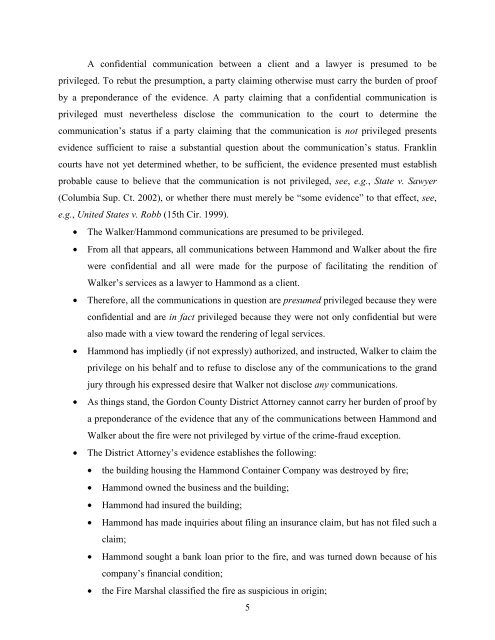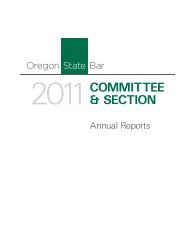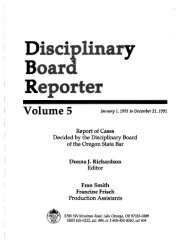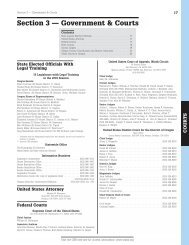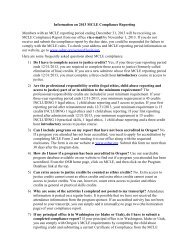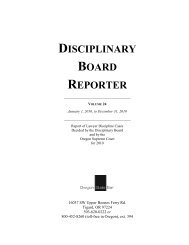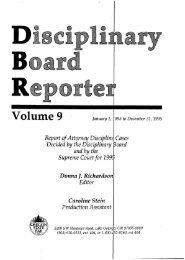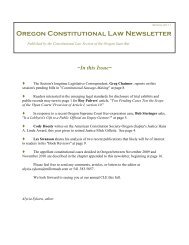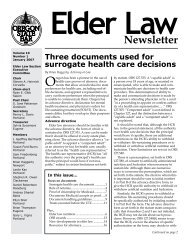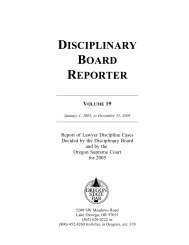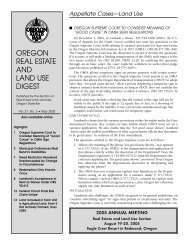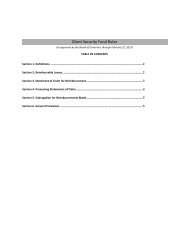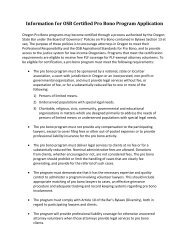MPT Grading Materials July 2010 - Oregon State Bar
MPT Grading Materials July 2010 - Oregon State Bar
MPT Grading Materials July 2010 - Oregon State Bar
You also want an ePaper? Increase the reach of your titles
YUMPU automatically turns print PDFs into web optimized ePapers that Google loves.
A confidential communication between a client and a lawyer is presumed to be<br />
privileged. To rebut the presumption, a party claiming otherwise must carry the burden of proof<br />
by a preponderance of the evidence. A party claiming that a confidential communication is<br />
privileged must nevertheless disclose the communication to the court to determine the<br />
communication’s status if a party claiming that the communication is not privileged presents<br />
evidence sufficient to raise a substantial question about the communication’s status. Franklin<br />
courts have not yet determined whether, to be sufficient, the evidence presented must establish<br />
probable cause to believe that the communication is not privileged, see, e.g., <strong>State</strong> v. Sawyer<br />
(Columbia Sup. Ct. 2002), or whether there must merely be “some evidence” to that effect, see,<br />
e.g., United <strong>State</strong>s v. Robb (15th Cir. 1999).<br />
• The Walker/Hammond communications are presumed to be privileged.<br />
• From all that appears, all communications between Hammond and Walker about the fire<br />
were confidential and all were made for the purpose of facilitating the rendition of<br />
Walker’s services as a lawyer to Hammond as a client.<br />
• Therefore, all the communications in question are presumed privileged because they were<br />
confidential and are in fact privileged because they were not only confidential but were<br />
also made with a view toward the rendering of legal services.<br />
• Hammond has impliedly (if not expressly) authorized, and instructed, Walker to claim the<br />
privilege on his behalf and to refuse to disclose any of the communications to the grand<br />
jury through his expressed desire that Walker not disclose any communications.<br />
• As things stand, the Gordon County District Attorney cannot carry her burden of proof by<br />
a preponderance of the evidence that any of the communications between Hammond and<br />
Walker about the fire were not privileged by virtue of the crime-fraud exception.<br />
• The District Attorney’s evidence establishes the following:<br />
• the building housing the Hammond Container Company was destroyed by fire;<br />
• Hammond owned the business and the building;<br />
• Hammond had insured the building;<br />
• Hammond has made inquiries about filing an insurance claim, but has not filed such a<br />
claim;<br />
• Hammond sought a bank loan prior to the fire, and was turned down because of his<br />
company’s financial condition;<br />
• the Fire Marshal classified the fire as suspicious in origin;<br />
5


